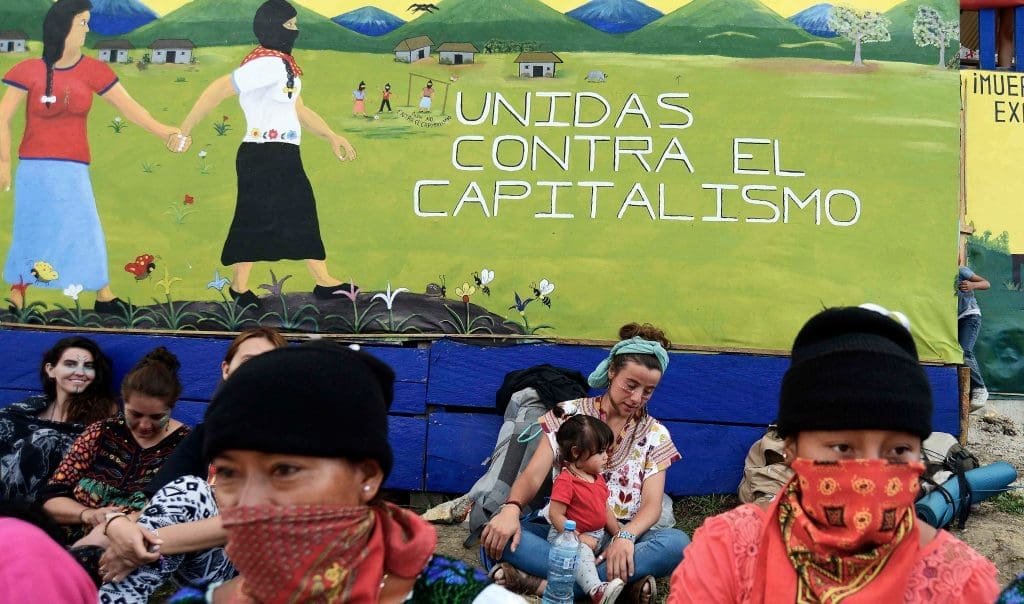Sex Workers and Health Policy Hypocrisy
by Kate Poor
13 February 2017
In 2003, US President George W. Bush established a multibillion-dollar initiative to fight the global HIV/AIDS epidemic. Known as the President’s Emergency Plan for AIDS Relief (PEPFAR), the program set out to distribute antiretroviral treatments, research cures, and develop infrastructural strategies for prevention. While some formal public health groups have lauded PEPFAR for “turning the tide on AIDS,” many activists and recipients of PEPFAR support have criticized Bush for the Western paternalism undergirding PEPFAR regulations that dictated how funds could be used.
Imbued with “family values” politics, PEPFAR policies mandated that funding recipients must base their interventions in traditionally conservative conceptions of sanctioned sexual behavior. For example, when Bush initiated PEPFAR, his policies required programs to allocate at least one third of all funds to establish and sustain abstinence-only sex education—even as evidence-based trials and public health officials across the globe have recurrently demonstrated the astounding ineffectiveness of an abstinence-only approach.
The stringency of this compulsory abstinence-only focus has, thanks to persistent protest and criticism, unraveled. However, another way in which the fundamentalist Christian ethic impedes PEPFAR’s efficacy—a mandated exclusion of sex workers from access to PEPFAR resources—has held its troublingly moralistic ground throughout PEPFAR’s lifespan.
When the program launched, allocation of services funded by PEPFAR (including antiretroviral treatment and sex education) to sex workers was prohibited. Organizations interested in PEPFAR funding had to sign an “anti-prostitution” oath that unilaterally condemned sex work and pledged to work against the legalization of prostitution.
Empirical studies and anecdotal evidence in countries with decriminalized or legalized sex work show that legalization begets many progressive advantages, such as a reduction in the transmission of STIs, a decrease in the pressures and stigmas around sex workers that preclude their access to healthcare and education, a decline in sexual violence perpetrated by clients and “pimps,” the possibility of introducing workplace protections for sex work (like unions, contracts, benefits, etc), and an increase in sex workers’ agency over their bodies, their families, their mobility, and their safety.
Sex workers’ organizations, feminist scholars, and public health groups have advocated for the legalization and destigmatization of sex work on these grounds, but powerful religious ideology in the United States obstructs activists’ work towards restructuring antiquated and malign conceptualizations of sex work. As feminist theorist Susan Archer Mann writes in her 2012 book Doing Feminist Theory:
Rather than abolishing prostitution, [sex workers’ rights activist Kamala] Kempadoo calls for the decriminalization of prostitution, applying occupational health and safety standards to workplaces, and working to eradicate restrictive immigration policies that contribute to the exploitation of migrant sex workers…In sum, [activists] argue that the vast range of sex industries and contexts require an understanding of diversity/difference and a realization that prohibition and unitary ‘moral values’ are part of the problem, not the solution.
Mann’s and Kempadoo’s assertion that insistently traditionalist “morals” obstruct healthcare progress is borne out by analysis of PEPFAR’s aggressively anti-prostitution posture throughout the last fourteen years. Flagrantly forgoing well-regarded public health and human rights arguments for social and legal destigmatization of sex work, PEPFAR policies actively advocated against decriminalization of prostitution through legitimating a conflation of sex work and human trafficking. As scholar Melinda Cooper has written:
Using the terms prostitution and sex trafficking interchangeably, [the Global AIDS Act of PEPFAR] specified that no US-derived funds could be used to promote the legalization or decriminalization of prostitution, that no support would be given to organizations that endorsed prostitution, and that all direct or indirect recipients of USAID funding must take a pledge explicitly stating their opposition to prostitution.
The ideology underpinning PEPFAR’s initial anti-prostitution guidelines demarcated sex work as presupposed exploitation, and understood sex workers exclusively as victims of either patriarchal violence or immoral deviants. Either way, this traditional Christian paradigm tells us that sex workers are incontestably in need of “saving.”

The conflation of sex work and commercial sexual exploitation is not unusual or unintentional. Criminologist Ronald Weitzer argues that Christian fundamentalists in the anti-human trafficking movement have degenerated the discursive reality of consensual prostitution through an all-encompassing delineation of all sex work as wrong, forced, and abusive. The Christian fundamentalism at work in some of today’s high-profile campaigns against modern slavery—though transformative in some abolitionist regards—has set healthcare justice for sex workers back, through imposing moralized limitations on access to reproductive healthcare and sex education, and through instituting an unwavering presumption that all sex workers fall into the a homogeneous category: victims of sex trafficking.
In this presumption of victimhood, PEPFAR follows the tradition of neocolonial interventions in which white Christian morality attempts to “save” women—particularly women of color in the Global South—from local exploitation, without thorough interrogations into the parameters of victimhood or critical investigations into the methods and makers of intervention themselves. Contrary to the willfully ignorant assumptions thus reproduced, many sex workers choose this career and do not wish or need to be “saved”—yet their healthcare needs are disregarded by PEPFAR’s provisions.
Laura Agustín—author of the critical, myth-dispelling book Sex at the Margins: Migration, Labour Markets, and the Rescue Industry—argues that anti-prostitution aid work overlooks community-specific narratives put forth by sex workers, instead privileging determinants of victimhood written by the presupposed “saviors.” This allows ideologically-based theories of “acceptable” sexual norms to impede efficacious public health interventions, to lump all sex workers together as victimized women in need of saving and “empowerment,” and most importantly, to endanger sex workers through denying vital healthcare and advocating a criminalizing approach that often results in violence and punitive measures against sex workers.
In other words, not only does this framework narrow-mindedly presume all sex work to be abusive, but PEPFAR’s regulations also have real and damaging consequences for people engaged in sex work—consequences that amount to abuse in their own right, on a massive scale. By closing off their access to education and treatment by organizations from whom they may otherwise have received support, PEPFAR increases sex workers’ risk of disease. Furthermore, by promoting the stigmatization of sex workers (through mandating that recipient organizations advocate against the legalization of sex work) PEPFAR has made sex workers more susceptible to harassment, deportation, and criminalization.
The hypocrisy runs even deeper than that. PEPFAR’s creators identify prostitution as “one of the principal vectors in the spread of HIV/AIDs,” and yet maintain their ban on any support to individuals engaged in prostitution. The contradiction leads one to wonder: if the creators of PEPFAR were genuinely moved to eradicate HIV/AIDS, wouldn’t they do everything they could to provide treatments for the people that they themselves have designated as principally vulnerable to acquiring and transmitting the virus? Here PEPFAR advocates’ moral crusade appears to supersede their own stated public health goals; even though they acknowledge the high risk of HIV/AIDS associated with sex work, they would rather withhold treatment than concede to the actuality of the world’s many, varied, messy, unconventional, and un-confinable constructions of sexuality and labor.
International public health interventions often conceal the export and imposition of fundamentalist Christian sexual mores by citing their commitment to advancing “women’s empowerment” and “public health.” But as studies on the pernicious repercussions of abstinence-only sex education and of criminalizing sex work have shown, these evangelized stipulations in “public health” programs malignantly impact communities across the globe and forestall progressive health interventions. The hypocrisy of a public health initiative that espouses a narrative of female empowerment while discriminating against individuals who engage in sex work undermines the guise of “public health” and “women’s equality” publicized by programs such as PEPFAR.
In order to disrupt detrimental public health frameworks embedded in programs such as PEPFAR, Agustín urges Western humanitarian agencies to listen to and take seriously the diverse range of sex workers’ stories. Agustín argues that sex workers’ many voices are redefining their occupation and doing so through their own discursive bounds. In hearing and accepting sex workers’ panoply of experiences, rather than building programs around outdated generalizations that conflate sex work with sex trafficking, public health initiatives could engage in efficacious interventions that would offer the freedoms and healthcare that individuals genuinely seek.

Following this vein of reclaiming healthcare agency, a coalition of public health and sex workers’ rights organizations filed a lawsuit in 2013, lambasting PEPFAR’s requisite anti-prostitution provisions. Their case (Agency for International Development v. Alliance for Open Society International) came before the US Supreme Court, where the justices determined that a clause compelling grant recipients to declare parallel ideology to the US government violates constitutional protections to freedom of speech. The anti-prostitution pledge was annulled. Well, sort of.
Most US-based organizations fell under the Supreme Court’s 2013 decision, but much of PEPFAR’s funding extends to foreign partners and international NGOs that are not covered by US constitutional freedoms. Even though the front pages of PEPFAR’s .gov webpage boast a commitment to destigmatizing prostitution and providing sex workers with adequate care, a little digging in the 2016 Operational Plan reveals that this newfangled tolerance for sex work is, perhaps, little more than cosmetic PR:
The US Government is opposed to prostitution and related activities, which are inherently harmful and dehumanizing, and contribute to the phenomenon of trafficking in persons. None of the funds made available under this agreement may be used to promote or advocate the legalization or practice of prostitution or sex trafficking (249-50).
Though the clause stipulates that this anti-prostitution position should not preclude access to healthcare for sex workers, the manual goes on to say that, unless your organization is an exempt domestic group, “by accepting this award or any subaward, a nongovernmental organization or public international organization awardee/subawardee agrees that it is opposed to the practices of prostitution and sex trafficking.” Ah. Supreme Court decision notwithstanding, not much has evolved in PEPFAR’s anti-prostitution pledge, except for the surface-level progressive packaging.
PEPFAR’s refusal to allow international grant recipients the right to determine their own relationship with sex work evidences the US government’s neocolonial desire to control the conceptions of sex, gender, and health in foreign states. Furthermore, the extremity of the AIDS epidemic has amplified the importance attached to PEPFAR funding, which concomitantly increases the United States’ capacity to intervene in the construction of healthcare services, education, and outreach programs in nations around the world. Melinda Cooper’s writing refers to many international NGOs, public health organizations, and government agencies that have started complying with PEPFAR’s mandated exclusion of sex workers, even if discrimination against sex workers had been antithetical to their principles prior. Simply put, the desperate need for funding to fight HIV/AIDS incentivizes public health bodies to accept US moralistic standards at the expense of sex workers—many times, against these organizations’ own better judgment.
The privileging of Western sexual norms underlines the fallacy of “public health” programming—PEPFAR promotes health for those who comply and assimilate to their underpinning moralistic mission, while excluding and punishing those who do not.
Many have voiced concern that the US will withdraw from its HIV/AIDS initiatives during the Trump administration. PEPFAR ensures that over 11.5 million people receive antiretroviral treatments; thus, to undo it would be devastating. However, if we fight to preserve PEPFAR, we should ensure that we are fighting for an updated version—one that supports and provides care for sex workers.
This alternate, bottom-up PEPFAR—shaped by the marginalized (“subaltern”) voices of sex workers and their healthcare advocates—would challenge the legacy of moral interventions in global health initiatives. Such an alternative would include comprehensive services that serve the multiplicity of sex workers’ experiences and exigencies, question the role of morality in the allocation of public health resources, and move away from paternalistic saviorism. The current regulations imposed from above and outside are harmful, pseudoscientific, and didactic, and disregard sex workers’ myriad needs and identities. Allowing sex workers to determine their healthcare for themselves would subvert this ineffective, paternalistic structure, and—beyond simply producing better health and safety conditions for sex workers—could also truly bring HIV/AIDS eradication within reach in a way that is impossible as long as sex workers are categorically excluded from treatment and education programs.
In her inquiry into “why so much passion and effort ha[s] not managed to improve life for people who sell sex,” Laura Agustín summarizes the inadequacy of international aid workers’ “good intentions” when they derive from rigid moralistic paradigms. Efficacious public health programs worldwide would benefit from some introspection, to parse out biases and unravel mainstream privileging of “Western” knowledge and attitudes, particularly when working in international settings. PEPFAR could precipitate more positive change in the battle against HIV/AIDS if, as Agustín and Susan Archer Mann suggest, “subaltern” sex workers’ voices had more space to speak and an ardently open-eared audience to listen and respond.
PEPFAR programming must be preserved—but it must also be reconfigured, with guidance from transnational feminist perspectives which privilege voices from the “subaltern,” question neocolonial and paternalistic impositions, and counter epistemic violence. Otherwise it is doomed to remain at best counterproductive, and at worst, a fatal instrument of Christian fundamentalism cloaked as international public health work.






